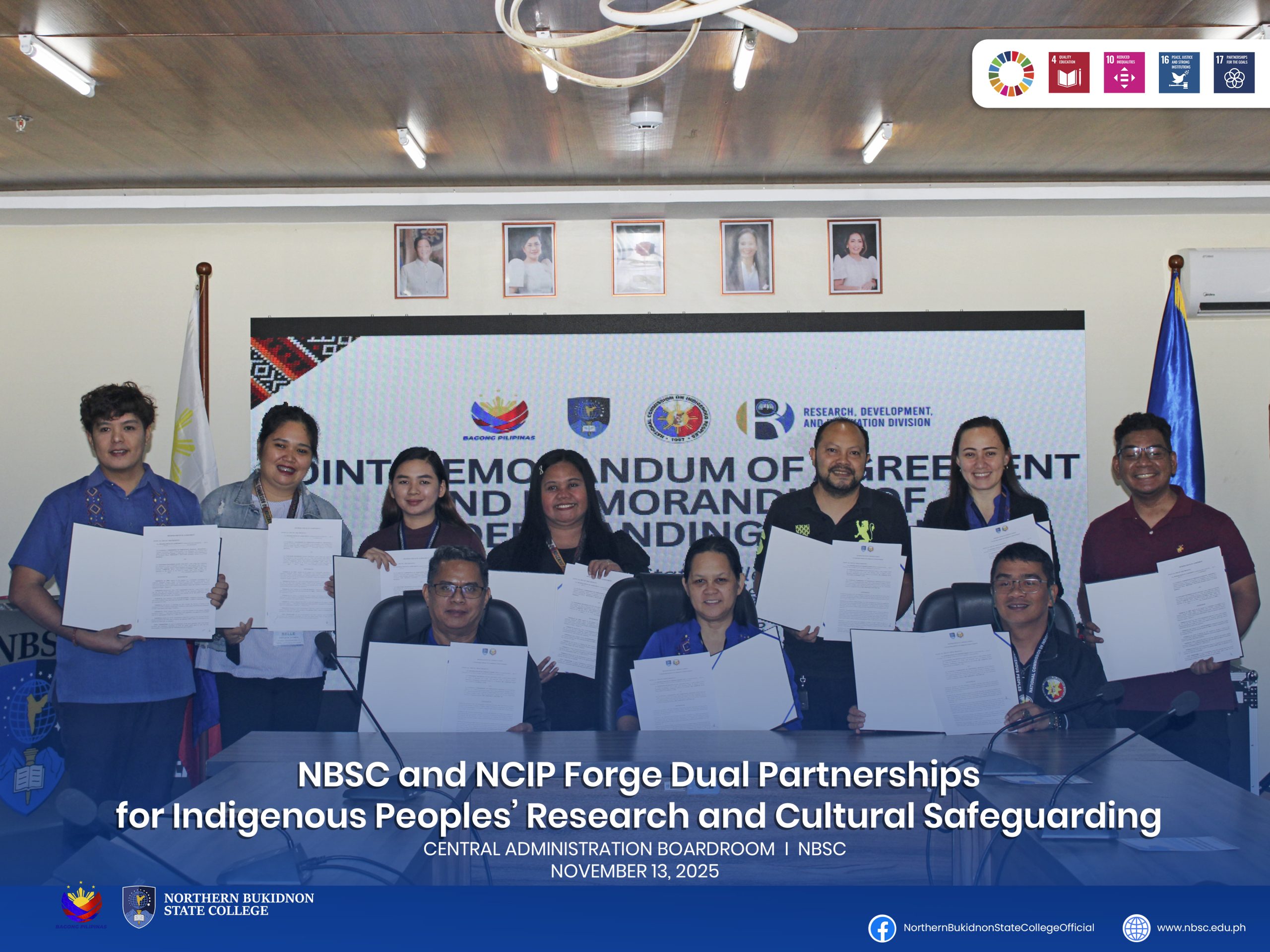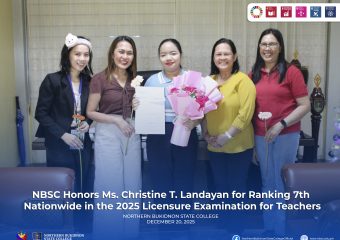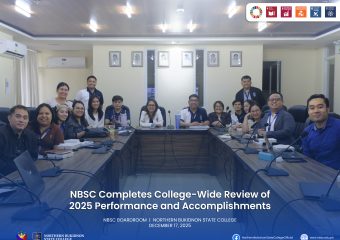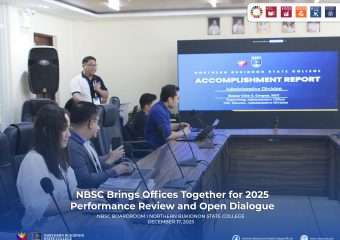NBSC AND NCIP FORGE DUAL PARTNERSHIPS FOR INDIGENOUS PEOPLES’ RESEARCH AND CULTURAL SAFEGUARDING
Northern Bukidnon State College (NBSC) has formalized two key partnerships with the National Commission on Indigenous Peoples (NCIP), signing both a Memorandum of Understanding (MOU) and a Memorandum of Agreement (MOA) on November 13, 2025. The new agreements are designed to enhance the college’s research and extension initiatives while championing the rights and cultural heritage of Indigenous Cultural Communities (ICCs).
The broad-reaching MOU with the NCIP Regional Office X establishes a framework for collaboration on NBSC’s research and extension programs. This partnership aims to ensure all institutional projects are conducted with cultural sensitivity. It also serves to protect the cultural heritage of ICCs/IPs, with NBSC providing support in documenting indigenous knowledge systems, customary laws, and cultural heritage mappings. Furthermore, the collaboration will assist in processes related to ancestral domains and indigenous political structures.
Concurrently, a specific MOA was signed with the NCIP-Bukidnon Provincial Office to support a research project titled “Charting the Paths: Exploring the Multifaceted Trajectories of First-Generation Indigenous People’s College Graduates in Southern Philippines.” This agreement outlines the cooperative effort to facilitate the mandatory Free and Prior Informed Consent (FPIC) process, as required by NCIP regulations.
The joint signing ceremony was held at the NBSC Boardroom. Key representatives included NBSC’s Vice President for Academic Affairs, Dr. Jovelyn G. Delosa; Research, Development, and Innovation Division (RDID) Director, Dr. Mary Koren Witting-Acuesa; and “Charting the Paths” Project Leader, Dr. Daniel S. Lerongan. They were joined by NCIP Regional Director Ordonio P. Rocero Jr. and NCIP Bukidnon Provincial Officer Ronald A. Baya-on.
These landmark agreements signify a deeper institutional commitment to ethical and culturally-attuned scholarship. By embedding formal respect for indigenous rights and knowledge systems into its operations, the college is better positioned to conduct impactful studies and community engagements that are built on genuine partnership and contribute meaningfully to the region’s development.





